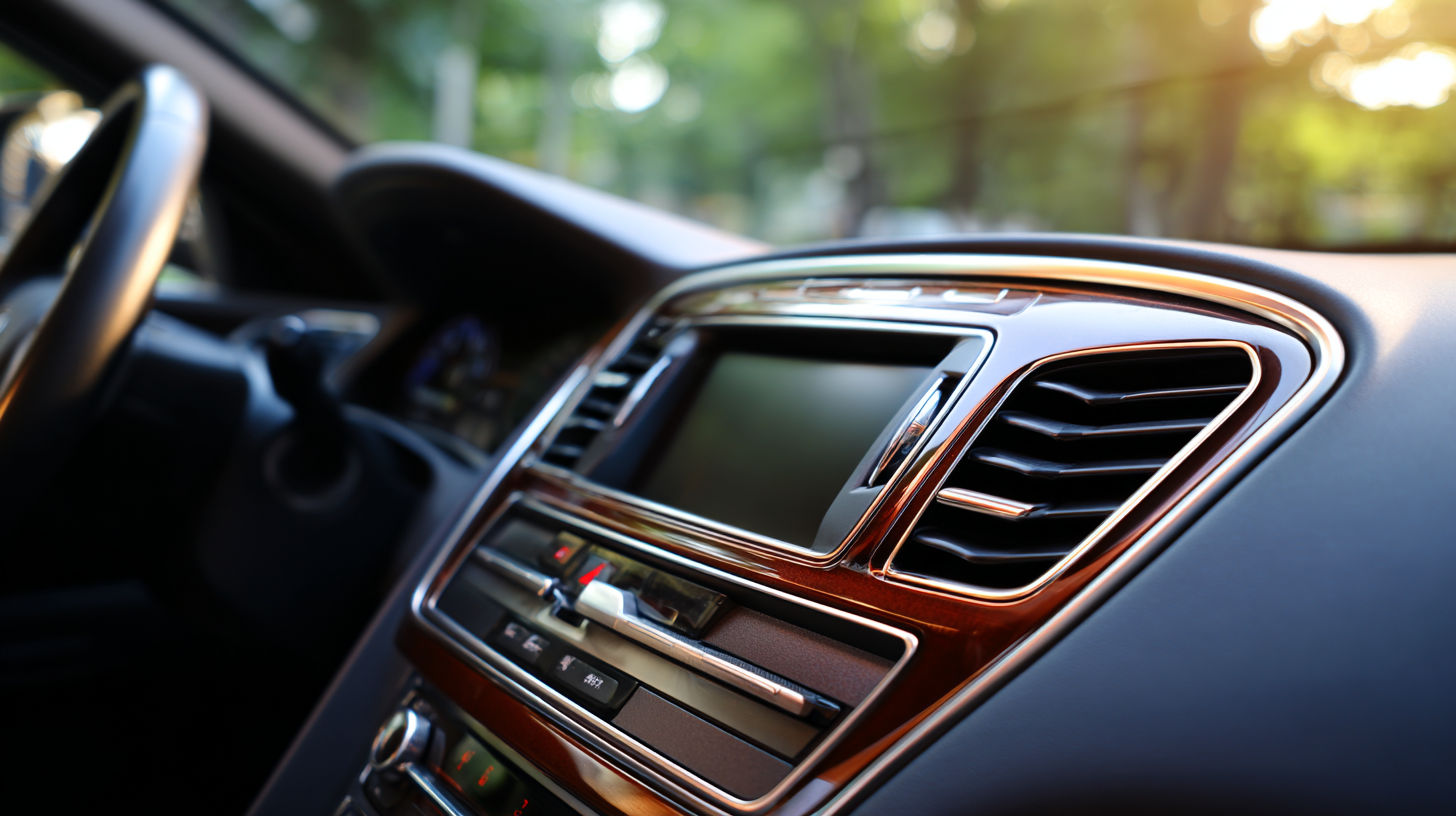 In the ever-evolving automotive industry, the significance of a high-quality Cabin Filter cannot be overstated. A recent study by the automotive research firm Technavio highlights that the global cabin air filter market is projected to reach USD 6 billion by 2025, growing at a CAGR of 6%. This growth is largely driven by increasing consumer awareness regarding air quality and health during travel, as well as stringent regulations on vehicle emissions. Cabin filters play a critical role in protecting the driver and passengers from pollutants such as dust, allergens, and harmful gases, ensuring a more comfortable and safe driving experience. Furthermore, with the rise of manufacturing capabilities in China, brands are now able to offer robust solutions that enhance vehicle comfort while being economically viable for global export. As we delve into the best cabin filter solutions available, it is essential to understand not only their importance but also how they contribute to a healthier automotive environment.
In the ever-evolving automotive industry, the significance of a high-quality Cabin Filter cannot be overstated. A recent study by the automotive research firm Technavio highlights that the global cabin air filter market is projected to reach USD 6 billion by 2025, growing at a CAGR of 6%. This growth is largely driven by increasing consumer awareness regarding air quality and health during travel, as well as stringent regulations on vehicle emissions. Cabin filters play a critical role in protecting the driver and passengers from pollutants such as dust, allergens, and harmful gases, ensuring a more comfortable and safe driving experience. Furthermore, with the rise of manufacturing capabilities in China, brands are now able to offer robust solutions that enhance vehicle comfort while being economically viable for global export. As we delve into the best cabin filter solutions available, it is essential to understand not only their importance but also how they contribute to a healthier automotive environment.
Cabin filters play a crucial role in maintaining the air quality inside vehicles, significantly contributing to overall driving comfort. Recent studies have highlighted alarming statistics, with every third vehicle's interior in Germany reported to be contaminated with harmful pollutants such as bacteria, mold, and pollen. This growing concern emphasizes the need for effective cabin air filters in vehicles, particularly as the automotive cabin air filter market in India is projected to expand from $59.99 million in 2024 to $207.99 million by 2032, achieving a CAGR of 16.8%.
To enhance your driving experience, consider the following tips: regularly replace your cabin filter as recommended by your vehicle's manufacturer to ensure optimal performance. Additionally, invest in high-efficiency particulate air (HEPA) filters, which can significantly reduce airborne allergens and pollutants. Staying informed about new advancements in cabin filter technologies can also help you make better choices for your vehicle's air purification needs.
Furthermore, the global automotive cabin air filter market is expected to surpass USD 9.59 billion by 2034, driven by increasing awareness of the health impacts of poor air quality in vehicles. As customers prioritize healthier driving environments, ensuring that your cabin filter is up to date can drastically improve your in-car experience and overall well-being.
When selecting a cabin filter manufacturer, several key factors can significantly enhance your driving experience. First and foremost, consider the filtering efficiency of the products. High-quality cabin filters can trap pollutants, allergens, and other particles, ensuring the air inside your vehicle is clean and safe. Look for manufacturers that provide specifications or testing data highlighting their filters' performance under various conditions.
Another critical factor is the material used in the cabin filters. Opt for those made from advanced materials that offer better durability and air permeation. Some filters are treated with activated carbon to not only filter particulates but also reduce odors and harmful gases from entering your vehicle. Always check for certifications or compliance with industry standards to ensure you are investing in a reliable product.
**Tip:** Regularly replacing your cabin filter can help maintain optimal air quality and prolong the lifespan of your vehicle's HVAC system.
**Tip:** Research customer reviews and ratings for different brands to gauge overall satisfaction and effectiveness before making a decision.
This chart illustrates the performance metrics of various cabin filters. It compares filtration efficiency, airflow resistance, lifespan, and cost, helping to inform decisions regarding the best cabin filter solutions for enhancing driving experience.
When it comes to improving your driving experience, selecting the right cabin filter is crucial. There are several types of cabin filters available, each offering unique benefits that can enhance both comfort and safety. The most common type is the particulate filter, designed to trap dust, pollen, and other small particles. This is ideal for those who frequently drive in urban environments or during allergy seasons, as it helps maintain clean air inside the vehicle, preventing allergens from circulating.

Another popular option is the activated carbon filter, which not only captures particulates but also absorbs odors and harmful gases. This type is particularly beneficial for drivers who navigate through industrial areas or roadways with heavy traffic, as it helps eliminate unpleasant smells and improve overall air quality. Additionally, some cabin filters are infused with antimicrobial properties, offering protection against bacteria and viruses. Choosing the right cabin filter tailored to your driving conditions not only enhances your comfort but also promotes a healthier driving atmosphere.
Cabin air quality is a crucial factor in enhancing the overall driving experience, with reports indicating that air pollution levels inside vehicles can be significantly higher than outside. According to the Environmental Protection Agency (EPA), the concentration of pollutants can be two to five times greater inside a vehicle, making effective cabin filtration essential. Innovative cabin filter solutions are now available that not only capture particulates but also adsorb harmful gases and odors, providing a safer and more pleasant environment for drivers and passengers alike.

Recent advancements in filtration technology highlight the importance of HEPA (High-Efficiency Particulate Air) filters, which can trap up to 99.97% of airborne particles. With allergens, dust, and particulate matter a common concern for many drivers, brands have begun to introduce filters infused with activated carbon to combat odors and volatile organic compounds (VOCs). According to market reports, the global automotive cabin air filter market is expected to grow by over 6% annually, reflecting a growing awareness and demand for high-quality air filtration solutions in vehicles. This progression in cabin filter technology not only caters to health-conscious consumers but also enhances overall driving comfort.
Regular maintenance of your cabin filter is essential to enhancing your driving experience and prolonging its lifespan. A clean cabin filter ensures the air inside your vehicle remains fresh and free from dust, pollen, and other pollutants. To maintain optimal performance, it is recommended to check your filter every 15 days if it's reusable and replace disposable filters monthly. Neglecting this task can lead to decreased air quality inside the car, making your drives less enjoyable and potentially causing allergies or respiratory issues.
Additionally, the importance of keeping your cabin filter in top condition can’t be overstated, especially in challenging climates. Just like how air conditioning units require regular servicing to function efficiently during the hot summer months or the rainy season, your vehicle's cabin filter must not be overlooked. By implementing these maintenance tips, you not only enhance the comfort of your driving experience but also improve your vehicle's overall performance. Regularly replacing and cleaning your cabin filter can save you money on repairs and ensure a more enjoyable journey for both you and your passengers.
| Filter Type | Material | Average Lifespan (miles) | Replacement Frequency (months) | Maintenance Tips |
|---|---|---|---|---|
| Activated Carbon Filter | Activated Carbon & Synthetic Fiber | 15,000 - 20,000 | 12 | Replace every year, clean with compressed air. |
| HEPA Filter | High-Efficiency Particulate Air Fiber | 20,000 - 30,000 | 18 | Check condition every 6 months, more frequent in polluted areas. |
| Cabin Air Filter | Paper & Synthetic Material | 10,000 - 15,000 | 12 | Inspect and replace every year. |
| Electrostatic Filter | Electrostatic Material | 30,000 + | 24 | Wash or replace every couple of years. |
